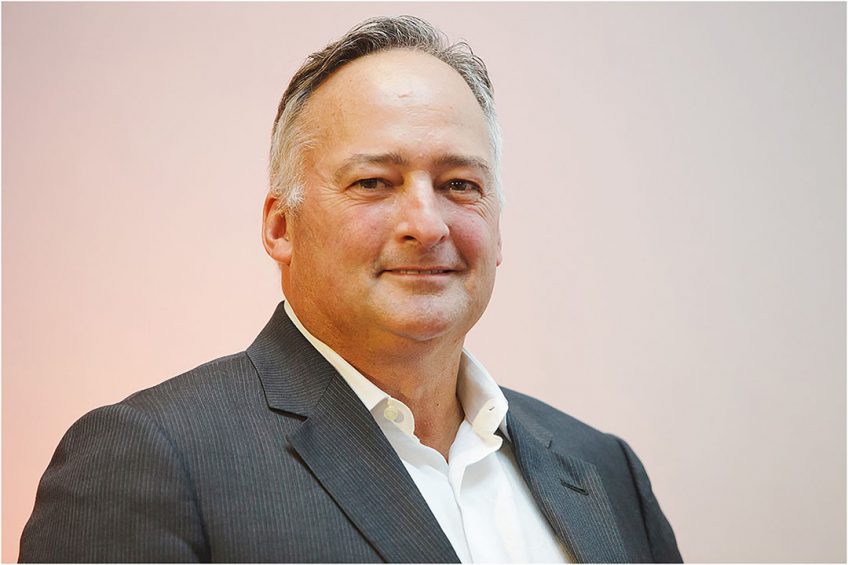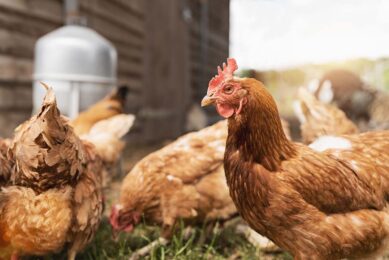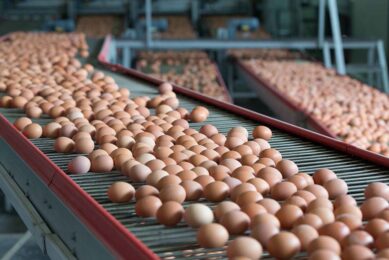Two years making a difference in the egg industry

Tim Lambert is the chief executive of Egg Farmers of Canada, and for the past two years has also been chairman of the International Egg Commission. This Autumn his tenure ends, so he sat down with Poultry World to reflect on his time at the top of the organisation.
So, Tim, your 2 years as chairman of the International Egg Commissions is drawing to a close – how have you found it, and what achievements are you most proud of?
“It feels like the fastest 2 years of my life – I don’t know where the time has gone, but I have loved the experience. I have been involved with the IEC since 2003 and love the people and really enjoy the industry. In terms of what I’m most proud of, we’ve been working really hard to achieve the UN sustainable development goals. We’ve also done a lot of work on biosecurity and have developed a practical checklist for farm businesses to follow that members are helping us to implement – that’s a critical component towards managing disease outbreaks like avian influenza.”
“The IEC has also signed a resolution that would see our industry work towards the elimination of slave labour – that’s something I’m really proud of, that we are the first agricultural commodity to sign on to that resolution. And I would have to say I’m really proud of the progress of the International Egg Foundation. We started with our project in Estwani (formerly Swaziland, where the foundation established an egg farm in 2016). Since then we’ve started a project in Uganda and we’re working on proposals for a project in India.”
One of the challenges for any IEC project is that you have to create standards that balance your members’ standards and production systems from around the world. For example, some countries like the UK are more than 50% free-range, while others are 100% conventional cage – how have you found that challenge?
“It has worked well. We tend to work through our executive board and office holders. In the case of avian influenza, we set up an expert working group, for welfare we brought in some outside expertise as well as our own. You look for the commonalities – everyone wants to do a good job of caring for the birds, and with the IEC our standards need to include all forms of housing, not just the systems common in North America or Western Europe. You’ve got to realise that 90% of the world’s hens are still in conventional cages, but it’s important that welfare is considered. So, you take an outcome-based approach on things like welfare standards and sustainability. Who doesn’t want to improve welfare or produce eggs more sustainably? It’s not always easy but we’re able to work through those challenges and come together with a vision.”
About Tim Lambert  Tim has worked his entire career in Agriculture. He graduated from the University of Guelph in 1983 with an Honours degree in Animal and Poultry Science. He is currently the CEO of Egg Farmers of Canada, a position he has held since 2003. Tim has worked his entire career in Agriculture. He graduated from the University of Guelph in 1983 with an Honours degree in Animal and Poultry Science. He is currently the CEO of Egg Farmers of Canada, a position he has held since 2003.Before joining Egg Farmers of Canada, Tim worked in the beef cattle industry for eight years as chief executive and GM of Beef Improvement Ontario, a genetic improvement company based out of Guelph, Ontario. Prior to his experiences in the beef industry Tim was the chief executive and GM of Ontario Swine Improvement and spent a total of 10 years in the pork industry. The IEC is a unique organisation that connects leaders in the global egg industry, providing representation. Founded in 1964, the organisation hosts 2 conferences each year – in Spring and Autumn. |
You mentioned a new nutrition initiative from the IEC – can you explain more?
“We’re about to launch an International Egg Nutrition Centre. One of the most exciting things about the egg is its nutritional quality – the quality of the protein and other micronutrients. We’re planning to identify some of the thought leaders in nutrition and eggs globally and create a space for them to contribute and share some of the latest and greatest in egg nutrition and then help us translate that into useable information that we can share with our member associations and member businesses.”
“There will also be a link to the International Egg Foundation because the projects we’re doing will have child and family nutrition – so having that kind of expertise available to those projects will also be really important. We also see it as a potential response team if there’s some negative articles based on poor science, they can speak to that on behalf of the global egg industry, and help us with representation to global bodies like to world health organisation and the FAO (Food and Agriculture Organization of the United Nations). I’m really excited about that.”
How has IEC membership helped you develop the Canadian egg industry?
“In Canada our industry continues to grow at a pretty rapid rate. Our industry is probably 65% bigger than it was a dozen years ago. It has grown significantly, and the IEC has played a critical role in that – it’s why I initially became involved. It gives you exposure to leading businesses who are constantly thinking about how to market eggs better and to improve – and at the spring and fall conferences you are exposed to that. But then speakers are really high quality and timely – and it’s like a form of professional development.”
“I attribute a significant amount of our success domestically to understanding what’s happening internationally. Whether it’s animal welfare or disease management, it serves as a real canary in the coal mine on future trends. I don’t think we could be as successful as we have been without the IEC.”
Want to read more articles from the latest issue of Poultry World then go to the overview page of our digital magazine and log in with your current log in details.
Join 31,000+ subscribers
Subscribe to our newsletter to stay updated about all the need-to-know content in the poultry sector, three times a week. Beheer
Beheer








 WP Admin
WP Admin  Bewerk bericht
Bewerk bericht